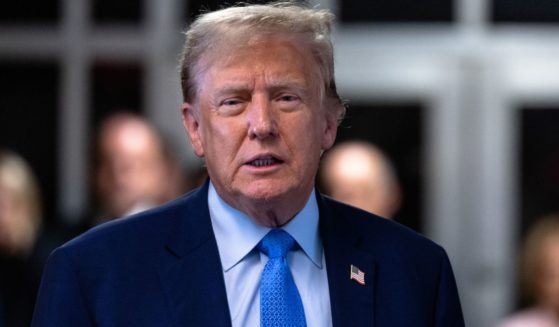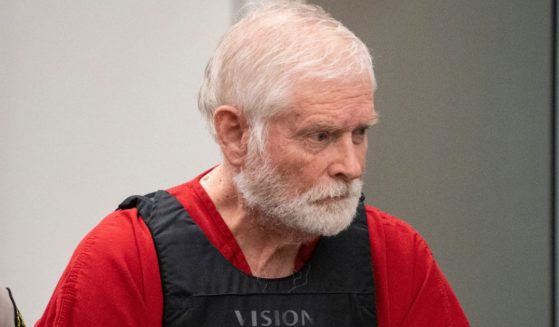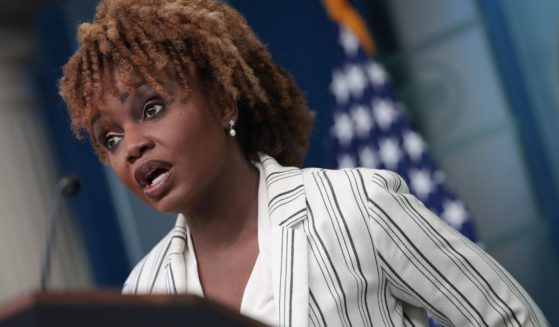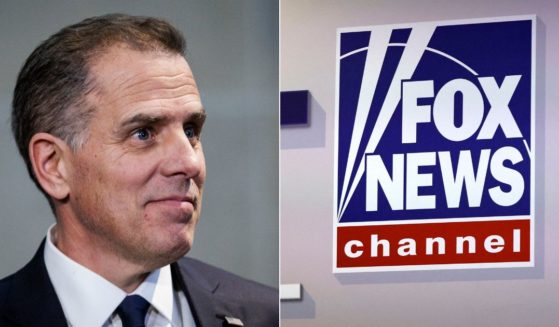AP source: Whitaker doesn't need to recuse from Russia probe
WASHINGTON (AP) — Acting Attorney General Matthew Whitaker chose not to recuse himself from the Russia investigation even though a top Justice Department ethics official advised him to step aside out of an “abundance of caution,” a senior official said Thursday.
Whitaker’s past criticism of the Russia investigation has raised questions about whether he can oversee it fairly. The ethics official said this week that a recusal was “a close call” but suggested that Whitaker remove himself, even though he was not required to do so.
Whitaker decided not to take the advice.
Earlier Thursday, a person familiar with the matter who was not authorized to discuss it publicly told The Associated Press that Whitaker did not have to recuse himself from overseeing the probe. But that wasn’t the full picture. Later, a senior Justice Department official provided a much more detailed account of the ethics consultation.
It showed that although Whitaker was not required to step aside from the investigation, the issue wasn’t so clear cut. That official spoke with reporters on condition of anonymity to discuss sensitive conversations.
Members of Congress have expressed concerns about Whitaker’s past criticism of special counsel Robert Mueller’s investigation. The probe is looking at Russian interference in the 2016 election and ties to President Donald Trump’s campaign. Deputy Attorney General Rod Rosenstein had overseen the investigation until last month, when Trump ousted Attorney General Jeff Sessions, who had recused himself from the probe, and appointed Whitaker. The senior official said Rosenstein continues to have day-to-day oversight of the probe.
The questions about Whitaker’s decision not to recuse himself will add to the controversies surrounding his appointment. Beyond the criticism about his comments on the Russia probe, Whitaker has also faced scrutiny for his involvement with the company that was accused of misleading consumers and is under investigation by the FBI and over questions about whether he violated federal law because a campaign committee set up for his failed 2014 U.S. Senate bid accepted $8,800 in donations this year.
He will almost certainly face questions from Congress if he is called to testify before a permanent attorney general is confirmed. President Donald Trump named William Barr — who was attorney general under President George H.W. Bush — to serve as the next attorney general, though Barr will have to be confirmed by the Senate.
When Whitaker was appointed, he formed a group of four Justice Department officials — led by a veteran U.S. attorney — to advise him on the transition and ethics process, the senior official said. That small group of officials met repeatedly with the Justice Department’s career ethics officials.
While working as a legal commentator for CNN, Whitaker once opined about a scenario in which Trump could fire Sessions and then appoint an acting attorney general who could stifle the funding of Mueller’s probe. His other past public statements have included an op-ed in which he said Mueller would be straying outside his mandate if he investigated Trump’s family finances. In a talk radio interview, Whitaker maintained there was no evidence of collusion between Russia and the Trump campaign during the 2016 election.
Whitaker was not required to solicit a recommendation from ethics officials, and it was at Whitaker’s discretion whether he should recuse, the senior official said. Ethics officials had also told Whitaker’s advisers that they had no precedent of another attorney general recusing himself or herself because of a perceived conflict.
Since taking office, Whitaker has not been briefed on specific developments of the special counsel’s investigation, and Rosenstein will continue to maintain day-to-day oversight for the foreseeable future, the official added.
However, the official said Whitaker can be briefed as the investigation moves forward, though there isn’t a set timetable yet on when that might begin.
Late Thursday, Assistant Attorney General Steven Boyd sent a letter to Senate Majority Leader Mitch McConnell and Minority Leader Chuck Schumer to lay out the ethics consultation. The Justice Department’s ethics officials had advised Whitaker that he should recuse himself because a “reasonable person with knowledge of the relevant facts likely would question the impartiality of the Acting Attorney General,” said Boyd in the letter, which was obtained by The Associated Press.
But Boyd defended Whitaker’s choice not to recuse himself, saying that he had praised Mueller as a “professional” and a “good man” and that Whitaker believes he is “fully acquainted with the ethical duties of a prosecutor.”
“Mr. Whitaker’s refusal to recuse is an attack on the rule of law and the American justice system, but it is undoubtedly consistent with what President Trump wanted – an unethical yes-man who will do his bidding rather than do what’s right,” Schumer said in a statement.
Rep. Jerrold Nadler, D-N.Y., who will take over as chairman of the House Judiciary Committee in January, said it was “unacceptable” that Whitaker didn’t inform members of Congress about his decision not to recuse himself and vowed to question Whitaker before the committee.
The question of whether an attorney general can or should recuse from a particular criminal investigation has long been politically fraught, and decisions in both directions have had far-reaching ramifications.
In 2016, for instance, then-Attorney General Loretta Lynch opted not to recuse herself from the Hillary Clinton email investigation despite an impromptu chat with her husband, former President Bill Clinton, at an airport tarmac in Phoenix. Lynch opted instead to accept the FBI’s recommendation on whether to bring charges. Former FBI Director James Comey has acknowledged being frustrated by that decision and went ahead days later with a controversial news conference at which he announced the FBI’s recommendation against charges.
Sessions recused himself from the Russia investigation just days into his job as attorney general. He said it was because of his work as a campaign surrogate for Trump, but the announcement followed revelations that he had had multiple encounters with the Russian ambassador over the last year. Trump never forgave him and ultimately forced him from the job a year and a half later.
___
Associated Press writers Eric Tucker and Mary Clare Jalonick contributed to this report.
The Western Journal has not reviewed this Associated Press story prior to publication. Therefore, it may contain editorial bias or may in some other way not meet our normal editorial standards. It is provided to our readers as a service from The Western Journal.
Truth and Accuracy
We are committed to truth and accuracy in all of our journalism. Read our editorial standards.












